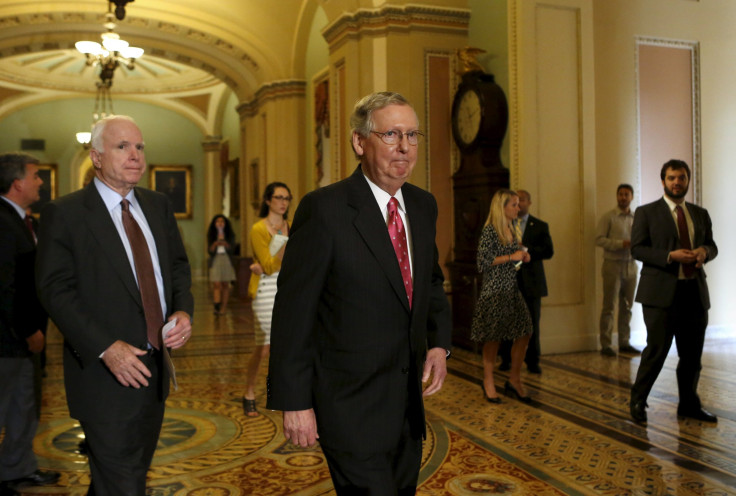Obama Trade Agenda: Senate Overcomes Democratic Trade Opposition To Advance TPA Bill

WASHINGTON -- President Barack Obama’s trade agenda got another green light in the Senate Tuesday, when the chamber voted to clear a procedural hurdle that will set up a vote later in the week for final passage of the Trade Promotion Authority. Republican leadership is optimistic that the trade bill, along with a separate piece of legislation that will provide assistance to the affected future trade agreements, will be sent to the president before the weekend.
This was the second time the Senate has had to vote on the legislation -- known as "fast track" that would give the president more authority to negotiate trade deals without congressional interference -- after it was amended by the House last week. The vote, which required a two-thirds majority, passed 60-37, with most Republicans and several Democrats voting in favor. It mirrored the previous votes taken by the Senate on the legislation.
Senate Democrats -- including Elizabeth Warren and Sherrod Brown -- who had worked to defeat the legislation the first time it was considered in the upper chamber, appeared resigned that there was little left to do this time around. Democrats oppose the bill because they argue future trade deals will cost American jobs and lack the needed protections for human rights and the environment. The trade bill, which is a key part of Obama’s trade agenda, has caused a deep division between Democrats in Congress and the White House. House Democrats succeeded in scuttling the original plans to pass the legislation with an assistance element earlier this month. House leadership opted to separate the parts of the legislation and were able to pass Trade Promotion Authority, which will give the president flexibility to negotiate trade deals, last week. By working with a small number of Democrats and Republicans, Obama appears poised to be the final victor.
Senate rules require 30 hours to lapse before a final vote can be taken. Once that is completed, the Senate is expected to take up Trade Adjustment Assistance, a piece that Democrats had insisted was necessary in any trade deal. TAA provides training and other programs for workers who may lose their jobs as a result of a trade deal. If the Senate passes TAA, the House is expected to also approve the bill on Friday.
The passage of TPA and TAA is being lauded by Republican leadership as a bipartisan accomplishment. “It’s demonstrating that both parties can work together to strengthen America’s national security at home and America’s leadership abroad, instead of simply ceding the future and one of the world’s fastest-growing regions to Chinese aggression,” Senate Majority Leader Mitch McConnell said before the Senate voted.
House Speaker John Boehner offered an optimistic timeline, saying he believes final passage could come before Congress heads home for a weeklong recess on Friday. "We remain committed to ensuring that both TPA and TAA are passed and enacted into law. The House has passed TPA as a standalone measure. The House will consider TAA once it passes the Senate as part of a new trade preferences bill. And we are ready to go to conference on the customs bill. Our goal is to get TPA and TAA to the president's desk this week and deliver this win for the American people."
Much of the opposition from Democrats focused not on the bill that's moving forward but on the Trans Pacific Partnership, an 11-nation trade deal currently being negotiated by the administration. The legislation currently being voted on will give Obama more flexibility to negotiate that deal and prevent Congress from amending it or using the filibuster to block it. Instead, Congress will only be able to conduct a yes-or-no vote. Democrats argue that TPP will cost American jobs and doesn't include enough protections against currency manipulation, human rights violations or environmental regulations.
"We made a vote today to throw people out of work," Brown said after the vote.
© Copyright IBTimes 2024. All rights reserved.






















